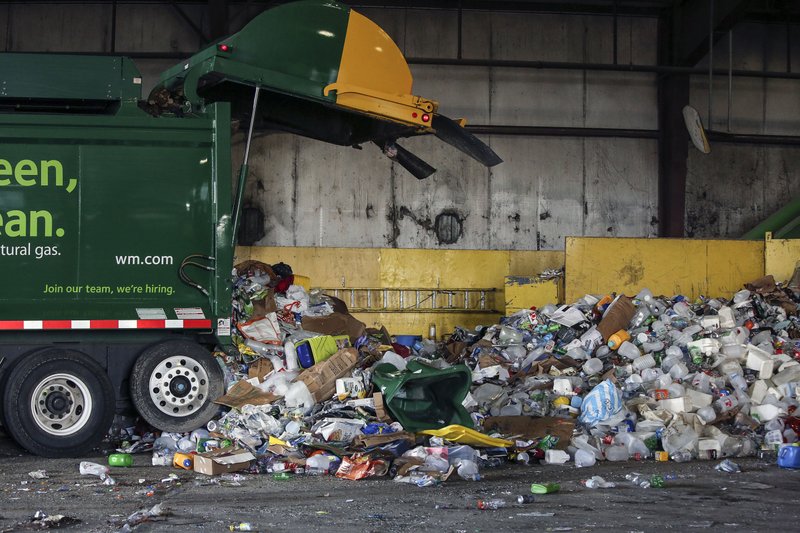It can be frustrating as all get out.
You go to all the trouble to separate the plastics, cans and cardboard (even glass in a few cities) from the trash, put it all out at the curb and feel good about doing your part to not be so wasteful. Then, in the evening, you open up your bin to discover the recycling truck employee has left several items behind.
What’s the point?
The “market” for recyclable materials depends a lot on the choices made by individuals and corporations.
The message: These items are unrecyclable. Next week, just toss'em in the trash.
Well, it's not really that they're unrecyclable. If you go to all the trouble of collecting them and baling them all up, though, nobody wants them. As "green" as residents, businesses and local leaders may want to be, it makes little difference if there isn't a "market" available that allows someone to make or save a buck by finding new uses for old materials.
That's what contributes to circumstances like those in Fort Smith, where city leaders are weighing whether to cut back on the frequency of recycling pick-ups. The city's recycling program, according to the city, is projected to have a $432,661 operating deficit this year. Faced with limited demand and markets for recycling that could help pay the bills, cutting back on expenses is the next obvious choice.
A lack of markets has also led recycling programs from time to time to dump collected materials into landfills. That's happened in Fort Smith and the University of Arkansas, among other communities across the nation.
In Bella Vista, the volunteer-focused nonprofit that collects recyclables last year saw a serious drop in revenue as the materials it collected had little value in the recycling market.
Truth be told, advocates for recycling would love nothing better than to collect more to recycle from residents and businesses, but without someplace to sell them, what's the point?
The point is to avoid sending recyclable materials into landfills, but there's a world of difference between what we know how to recycle and what we can afford to recycle in our communities. How high are ratepayers or taxpayers willing to see their rates go up as a subsidy to cover the costs collecting and shipping materials to companies that can turn them into something useful?
As consumers, buying products based on need rather than want can help cut back on what needs to be recycled. Re-using products as long as you can is important.
The nation's private manufacturers and retailers are at the center of just how wasteful a nation we're going to be. If they demand post-consumer recycled materials for use in new merchandise, it will promote demand for more recyclable materials collected within communities, thus increasing the value and creating revenue to support the effort. If they set high expectations for cutting waste in packaging, problems will be eliminated before they even exist.
Recycling will only work if individuals, government and industry can create a balance within the market that reduces waste, promotes responsible use of materials and supports a recycling economy. As usual, consumer behaviors and expectations will have a lot to do with whether recycling can be a success.
There is a limit to just how wasteful this world will allow us to be. The sooner we recognize that as a fundamental element of public policy and corporate and individual responsibility, the more directly we can address the function of our disparate recycling systems across the country.
Commentary on 01/17/2020

